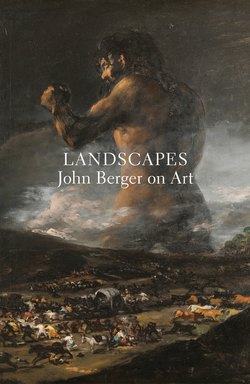Читать книгу Landscapes - John Berger - Страница 11
На сайте Литреса книга снята с продажи.
4. Frederick Antal –A Personal Tribute
ОглавлениеANTAL, THE LOGICAL, precise, profound art historian, has deservedly earned his international reputation. But in any assessment of his work the importance of his Marxism tends to be underestimated. In a curious way this is probably done out of respect for him: as though to say ‘He was brilliant despite that – so let’s charitably forget it.’ Yet, in fact, to do this is to deny all that Antal was. Admittedly a man’s personality is fashioned by his temperament as well as by his beliefs. And certainly Antal had his temperament. Nevertheless, all the features that distinguished him so clearly, both as a man and as a thinker, completely coincided with, even if they were not all originally created by, his Marxism.
Art history for him was not just an ‘interesting’ field to be excavated: it was a revolutionary activity. Facts were weapons unearthed from the past in order to be used in the future. And his whole character reflected this attitude. Meeting him for the first time one would not have guessed that he was an historian. He had none of the comfortable insulation against life that academic study usually ensures.
In appearance he was very tall, with long, dark, swept-back hair. His face was gaunt and he had very bushy protruding eyebrows which, always clenched, emphasised by contrast the depth and calm of his eyes that were simultaneously velvety, gentle and very hard. Only the movements of his long, thin hands indicated his extreme sensitivity. His expression was severe – not the petulant severity of an embittered schoolmaster, but the patient severity of a man who has long been vigilant alone. When he occasionally laughed or made some gentle personal remark, his expression changed and became as uncomplicated as that of a schoolboy.
One would probably have said, despite the fact that his presence straightaway shamed one out of any romanticism, that he was either a poet or a political leader. When I used to go and see him and tell him of my week’s activities, I felt like a messenger reporting to a general. Not because I ever had anything very important or revealing to tell him, but because the way he would listen reminded one that to the real tactician even the smallest facts may be significant.
As for the poet in him – this was more complicated. It had nothing to do, for instance, with his attitude to language. On the contrary, he had little feeling for words and considered them absolutely functionally, absolutely unsensuously; they were simply nails to be hit on the head in order to fix an idea or establish a fact in its proper place. It was rather that his sense of history, connecting the past with the future, was similar to the epic poet’s sense of destiny. And just as the poet seeks to connect intuitively by images, Antal sought to connect rationally by research. Above all his compulsion to work was similar to a poet’s. He worked to release a vision.
Another thing I would like to emphasise is Antal’s feeling for paintings and sculpture. He never simplified the mystery out of art – and by mystery I mean the power of a work of art to affect the heart. I have seen him profoundly moved in front of works he admired. Nor was his judgment of a work necessarily dependent upon his knowledge of all the related facts. A few weeks before he died, we went together to an exhibition of a contemporary Asian painter whom neither of us knew anything about. As we walked round he demanded now and again the date of a particular painting. Most of them were fifteen or twenty years old. After about half an hour he asked me what I thought. I was rather enthusiastic. He agreed that the paintings were good, but told me to think about what their style could lead to, what the same artist’s later pictures would be like. Then, in great detail, he described what he foresaw. When we went out we passed through another gallery. There, unbeknown to either of us, were the same artist’s later paintings. They were exactly as Antal had described them.
Finally I want to mention his optimism. He always said that it was not age or generation which counted, but one’s outlook. And it was the optimism of Antal’s outlook that kept him young. As an exile, at odds in his fundamental beliefs with nearly all his Western colleagues, and – a lack he felt very keenly – denied in this country any outlet for his great talents as a polemicist, he had little personal reason for being optimistic. Nor was his optimism of the short-term sentimental sort. Indeed he saw very clearly the full extent of the present corruption of Western culture and realised that even when true socialism had been achieved, it would take a long time for any tradition of real art to be re-established. What I call his optimism consisted of his conviction that all who fought this corruption and worked for socialism – in however small or unrecognised a way – were doing something of certain value. In an age of frantic self-justification erected over a sense of futility and despair, he remained intellectually calm: confident in the judgment of history which – as I have tried to show – meant for him the judgment of the future.
